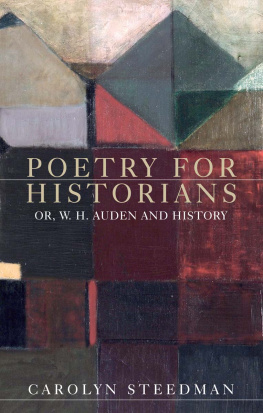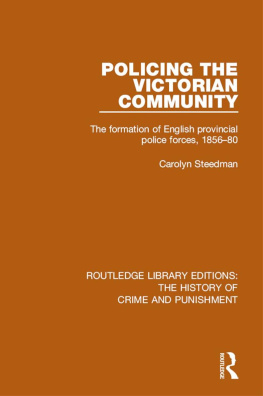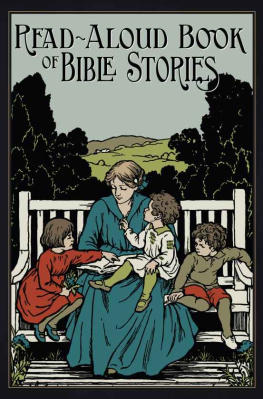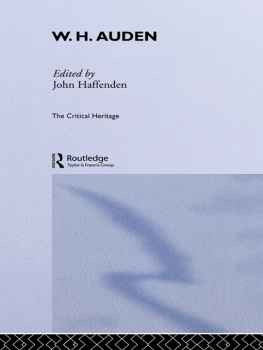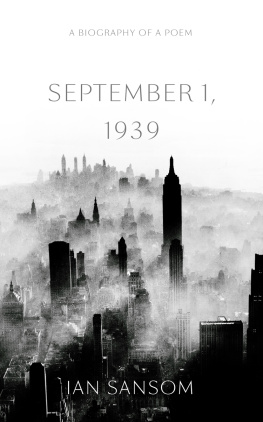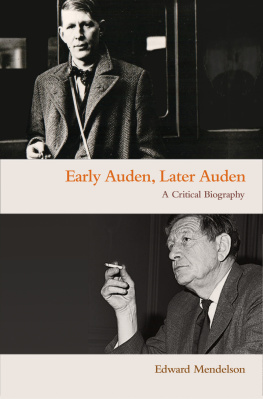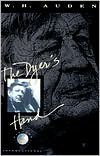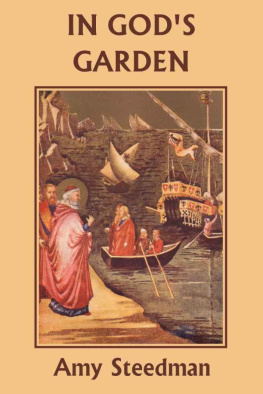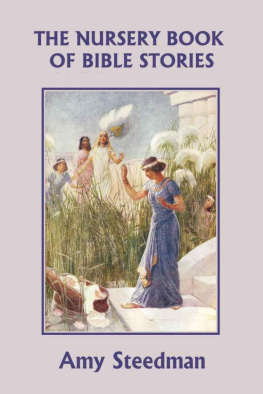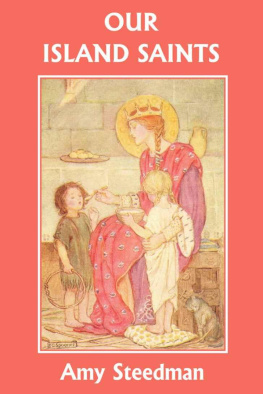Carolyn Steedman - Poetry for Historians: Or, W.H. Auden and History
Here you can read online Carolyn Steedman - Poetry for Historians: Or, W.H. Auden and History full text of the book (entire story) in english for free. Download pdf and epub, get meaning, cover and reviews about this ebook. year: 2018, publisher: ManchesterUP, genre: Art. Description of the work, (preface) as well as reviews are available. Best literature library LitArk.com created for fans of good reading and offers a wide selection of genres:
Romance novel
Science fiction
Adventure
Detective
Science
History
Home and family
Prose
Art
Politics
Computer
Non-fiction
Religion
Business
Children
Humor
Choose a favorite category and find really read worthwhile books. Enjoy immersion in the world of imagination, feel the emotions of the characters or learn something new for yourself, make an fascinating discovery.
- Book:Poetry for Historians: Or, W.H. Auden and History
- Author:
- Publisher:ManchesterUP
- Genre:
- Year:2018
- Rating:4 / 5
- Favourites:Add to favourites
- Your mark:
- 80
- 1
- 2
- 3
- 4
- 5
Poetry for Historians: Or, W.H. Auden and History: summary, description and annotation
We offer to read an annotation, description, summary or preface (depends on what the author of the book "Poetry for Historians: Or, W.H. Auden and History" wrote himself). If you haven't found the necessary information about the book — write in the comments, we will try to find it.
Carolyn Steedman: author's other books
Who wrote Poetry for Historians: Or, W.H. Auden and History? Find out the surname, the name of the author of the book and a list of all author's works by series.
Poetry for Historians: Or, W.H. Auden and History — read online for free the complete book (whole text) full work
Below is the text of the book, divided by pages. System saving the place of the last page read, allows you to conveniently read the book "Poetry for Historians: Or, W.H. Auden and History" online for free, without having to search again every time where you left off. Put a bookmark, and you can go to the page where you finished reading at any time.
Font size:
Interval:
Bookmark:

Poetry for historians

Poetry for historians
Or, W. H. Auden and history
Carolyn Steedman
Manchester University Press
Copyright Carolyn Steedman 2018
The right of Carolyn Steedman to be identified as the author of this work has been asserted by her in accordance with the Copyright, Designs and Patents Act 1988.
Published by Manchester University Press
Altrincham Street, Manchester M1 7JA
www.manchesteruniversitypress.co.uk
John Ashbery, The Ridiculous Translators Hopes, from And the Stars Were Shining by John Ashbery. Copyright 1994 by John Ashbery. Reprinted by permission of Georges Borchardt, Inc., on behalf of the author, and by Carcanet Press, Manchester.
British Library Cataloguing-in-Publication Data
A catalogue record for this book is available from the British Library
ISBN 978 1 5261 2521 7 hardback
ISBN 978 1 5261 2523 1 paperback
First published 2018
The publisher has no responsibility for the persistence or accuracy of URLs for any external or third-party internet websites referred to in this book, and does not guarantee that any content on such websites is, or will remain, accurate or appropriate.
Typeset by
Servis Filmsetting Ltd, Stockport, Cheshire
O lurcher-loving collier black as night,
Follow your love across the smokeless hill;
Your lamp is out, the cages are all still;
Course for heart and do not miss,
For Sunday soon is past and, Kate, fly not so fast,
For Monday comes when none may kiss:
Be marble to his soot, and to his black be white.
W. H. Auden, Madrigal, 1938.
The social revolution can only create its poetry from the future, not from the past.
Karl Marx, The Eighteenth Brumaire of Louis Bonaparte, 1852.
I know the fact is really not unnerving
That what is done is done, that no past dies,
That what we see depends on whos observing,
And what we think[,] on our activities
W. H. Auden, Letter to Lord Byron, JulyOctober 1936.
| Dakin | How does stuff happen, do you think? People decide to do stuff. Make moves. Alter things. |
| Irwin | Im not sure what youre talking about. |
Alan Bennett, The History Boys, 2004.
All of this is only because I just wanted to say a poets words, over and over again, to someone. Poetry may make nothing happen in the world nothing at all, as W. H. Auden said; it may exist only in the place and time of its own creation, but it moves and matters because it maps onto other minds and experiences in ways quite unintended by the poet.have the chance to make something new out of something so beautiful; to make a new thing that is also beautiful in its turn. And have the ability to do so. Frosts Madrigal was a thing made in a future that hadnt happened yet when Auden made his; it is poetry, in its widest meaning, created in a future ten years on from the time of Audens making.
This book isnt about history-poems, poems about historical events, or history-poetry: no Eve of Waterloo or Charge of the Light Brigade here; no Battle of Minden, a Poem. In Three Books (1769) by the entirely forgotten Sydney Swinney.
Listening to a discussion that never took place among the poet and his friends, and once upon a time, I had a mind to call this book Poetry for Historiographers, but then I would have been read even less than the Revd Swinney has been.
Auden wrote a number of poems about historical events; two are famous for his later renunciation of their historiography. Spain 1937, quoted from above, was about an event a civil war that had already been designated historical. He had spent time in Spain, was witness to violence perpetrated by both sides during the Civil War. The poem is an act of historical testimony and Audens historiographical reflection on the events he described in 1937, and later, when he altered his account. of this book) nothing is capable of being dispersed, or going away. He also knew that how you tell the past, or write history, depends on what youre doing and thinking and making (on our activities), right now. The fictional sixth former Dakin in Alan Bennetts play The History Boys describes the historians everyday activities and mode of thinking in a series of questions to his teacher that are acutely poetic: How does stuff happen, do you think? People decide to do stuff. Make moves. Alter things though his author did not put Dakins last three in interrogative form.
Historiography is to history as poetics is to poetry. To modern students and scholars to academics in the West, history means the study of past events and writing of them in narrative form; the narrative embodies an explanation of those events. Then, of late, historiography has also come to mean something akin to the philosophy of history: there is interest in historians own covert or overt philosophy of event, time, and causality; interest in the meaning they ascribe to what they put before you, usually in writing. Historiography is a way of thinking about and analysing a thing (a fairly recent development of the modern world) called History.
Poetics is the study of the linguistic techniques used by writers making poetry and other literature. Its aim is to disinter the way in which a text works: its internal operation. Sometimes, in accounting for poetics as an intellectual activity, the third-century BCE philosopher Aristotle is quoted: I propose to treat of Poetry in itself and of its various kinds, noting the essential quality of each, to inquire into the structure of the plot as requisite to a good poem; into the number and nature of the parts of which a poem is composed; and similarly into whatever else falls within the same inquiry. This idea of history, which emerged in the long nineteenth century, is discussed throughout this book.
It is sometimes said that when historians do take any notice of the written artefacts produced by poets they are more likely to plunder them for content for quotations to support the historical argument they are making than they are to pay attention to them as forms of composition. In this way we detach the content of a poem from its properties of form and genre. This is a naivety dressed up for misinterpretation, says Blair Worden.much for their reading of proto-industrialisation and domestic service in the Pennine region, c.1780 to 1810. This can only mean that I havent done a very good job of making literature matter for the writing of history.
The poetry that threads through this book is W. H. Audens. I have loved Audens poetry very much, though lately, and as shall be related, have learned that I must care for it in a new way, for the old one will no longer do. I had believed that Auden taught me about history as a written form and cultural activity; about the ways history gets written; about Historys quiddity. But you love for the wrong reasons; or the shape of what you love dissolves as new knowledge washes over it. The poetry lessons remain, however; you go on reciting the Past as if there were one (he merely told/the unhappy Present to recite the Past/like a poetry lesson), which is why this book is about the poetics of history (the poetics of the written history) and about its poetry.
I thought Audens poetry to be so historiographically acute and beautiful that sometimes I could see no way forward for my own writing but to carry on repeating his words, until the end of my days.
Font size:
Interval:
Bookmark:
Similar books «Poetry for Historians: Or, W.H. Auden and History»
Look at similar books to Poetry for Historians: Or, W.H. Auden and History. We have selected literature similar in name and meaning in the hope of providing readers with more options to find new, interesting, not yet read works.
Discussion, reviews of the book Poetry for Historians: Or, W.H. Auden and History and just readers' own opinions. Leave your comments, write what you think about the work, its meaning or the main characters. Specify what exactly you liked and what you didn't like, and why you think so.

